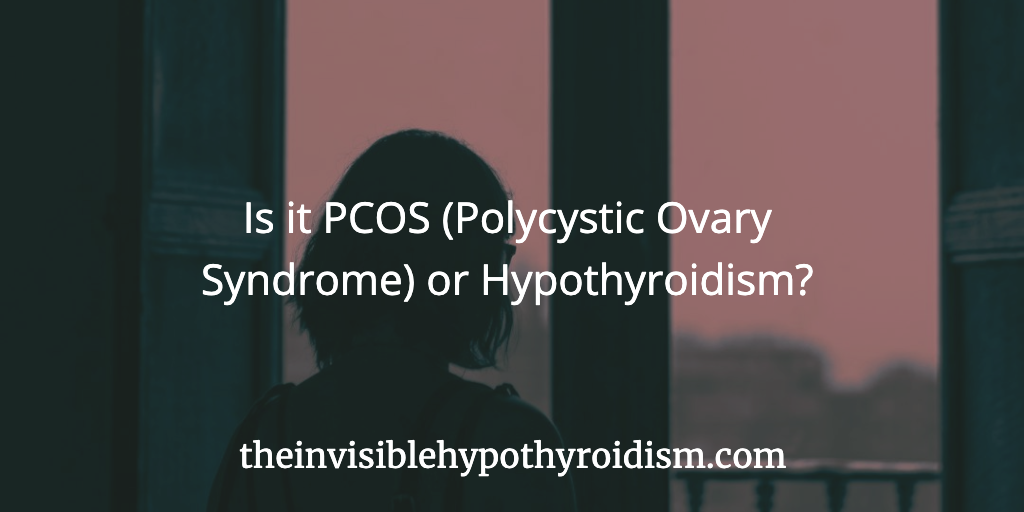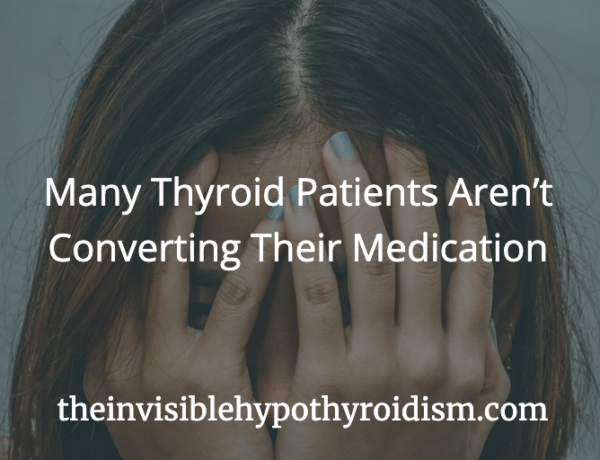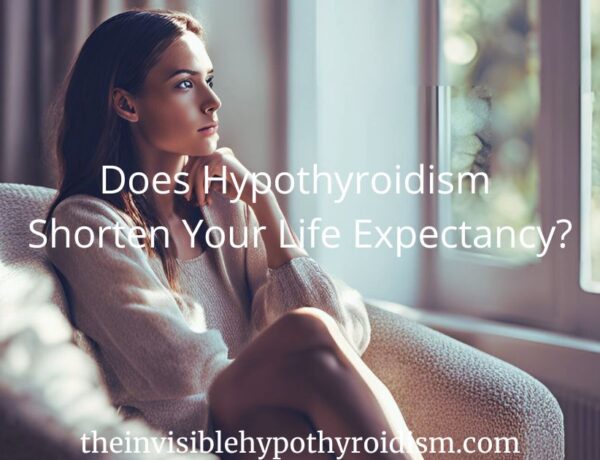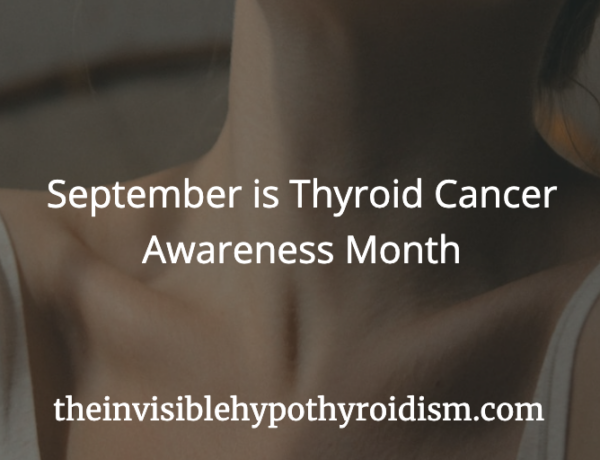Originally published on 30th July 2019 Last updated on 19th July 2024
Around 1 in 10 females of childbearing age have the condition known as PCOS (Polycystic Ovary Syndrome). However, many of the signs and symptoms of PCOS are similar to hypothyroidism.
Are some thyroid patients going undiagnosed for PCOS? And are some PCOS patients going undiagnosed for a thyroid condition?

PCOS can cause pain.
Does Our Thyroid Deserve All The Blame?
A concern I have when speaking to members of the thyroid community is the habit of blaming perhaps too much on our thyroid condition. Obviously, we all know our own bodies best, but the tendency to think that all and any health complaints must come from our diagnosed thyroid condition such as Hashimoto’s or hypothyroidism, could mean that we’re actually missing another health condition altogether.
On average, women with PCOS tend to have higher TSH levels and be subclinically (borderline) hypothyroid when compared to controls of the same age without PCOS. [1]
PCOS and Thyroid Conditions Share Symptoms
Do any of the following signs and symptoms sound like thyroid ones?
Note: not every person with PCOS will have every symptom, but they will likely have a combination.
- Fatigue
- Irregular periods
- Painful periods
- Failure to ovulate
- Miscarriages and fertility problems
- Hair loss
- Weight gain
- Skin complaints
- High cholesterol
- Difficulties losing weight
- Mental health conditions
Yes, they do!
I’ve heard from many thyroid patients over the years who complain of these symptoms despite being on thyroid medication and with optimal levels. What if they’re actually down to another issue, such as PCOS?
PCOS’ irregular periods, non-ovulation, high levels of male hormones in the body (excess androgen) which can lead to excess facial and body hair, failure to conceive, weight gain, acne and hair loss from the scalp, can all be mistaken for symptoms of a thyroid condition such as Hashimoto’s and hypothyroidism.
Menstrual issues with hypothyroidism are especially well-recognised. Hypothyroidism can lead to heavy, irregular menstrual cycles, non-ovulation and struggles to conceive. [2], [3], [4]
PCOS, like hypothyroidism and Hashimoto’s, is also associated with an increased risk of developing further health conditions, such as type 2 diabetes and high cholesterol levels.
Hashimoto’s Thyroiditis is Common in Those with PCOS
Hypothyroidism, and in particular, Hashimoto’s thyroiditis, is more common in women with PCOS than in the general population. High levels of thyroid antibodies (Hashimoto’s) are found in one in three PCOS patients [1].
If a person has either Hashimoto’s or PCOS, the chance of being diagnosed with the other increases up to ten fold! [4], [5]
Hypothyroidism can also lead to changes in the ovaries so that they become polycystic. [6]
What Causes PCOS?
The cause of PCOS isn’t well known just yet, but we do know that it often runs in families, just like hypothyroidism and Hashimoto’s.
So, Are Your Symptoms Thyroid Related or PCOS?
The best way to know is through testing.
A full thyroid panel of TSH, Free T3, Free T4, Thyroid Peroxidase Antibodies, Thyroglobulin Antibodies at the very least, with results compared to optimal levels, should show if your thyroid is really causing the symptoms. Non-optimal thyroid levels can cause a lot of ongoing issues.
A diagnosis of PCOS is usually made following a ruling out of conditions with similar symptoms and a match of two to three of the following:
- Irregular periods which indicate that you don’t regularly / predictably ovulate
- Blood tests showing high levels of male hormones, such as testosterone
- Scans showing you do indeed have polycystic ovaries
For a PCOS Blood Test, click here.
Any person with PCOS would benefit from being checked for a thyroid condition too and even if they’re found to be ‘only borderline‘ hypothyroid, evaluated for whether treatment for hypothyroidism could help.
A quarter of all those with PCOS have a thyroid condition, but this often goes missed.
If it’s found that you have both hypothyroidism and PCOS, you’ll need treatment to address your low thyroid hormone levels, as the combination of both diseases can accelerate the overall reduction in egg count. [6]
How many women could be unaware of this additional health condition?
You can click on the hyperlinks in the above post to learn more and see references to information given, but also find more information below.
https://www.ncbi.nlm.nih.gov/pmc/articles/PMC4287775/
References
[1] https://www.ncbi.nlm.nih.gov/pubmed/15012623
[2] https://www.ncbi.nlm.nih.gov/pubmed/21641659
[3] https://www.ncbi.nlm.nih.gov/pubmed/20573783
[4] https://www.ncbi.nlm.nih.gov/pubmed/22115162
[5] https://www.ncbi.nlm.nih.gov/pubmed/20332127
[6] https://www.markvanderpump.co.uk/blog/posts/is-there-a-link-between-pcos-and-an-underactive-thyroid




